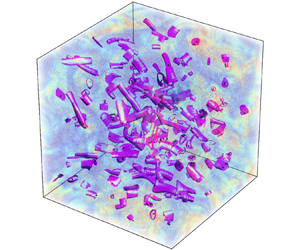Refine listing
Actions for selected content:
1419237 results in Open Access
Waterworks, municipal government and the environment in twentieth-century Britain
-
- Journal:
- Urban History / Volume 51 / Issue 3 / August 2024
- Published online by Cambridge University Press:
- 10 October 2023, pp. 600-615
-
- Article
-
- You have access
- Open access
- HTML
- Export citation
Adeline Mueller. Mozart and the Mediation of Childhood Chicago: Chicago University Press, 2021. Pp. 288.
-
- Journal:
- Austrian History Yearbook / Volume 55 / May 2024
- Published online by Cambridge University Press:
- 10 October 2023, pp. 446-447
- Print publication:
- May 2024
-
- Article
- Export citation
How the first revolution affected the second: The setback of 1927 for the Chinese Communist Party Revolution in the 1920s
-
- Journal:
- Modern Asian Studies / Volume 58 / Issue 2 / March 2024
- Published online by Cambridge University Press:
- 10 October 2023, pp. 448-484
- Print publication:
- March 2024
-
- Article
- Export citation
Motion of a viscous slug on heterogeneous surfaces: crossover from stick–slip to steady sliding
-
- Journal:
- Journal of Fluid Mechanics / Volume 973 / 25 October 2023
- Published online by Cambridge University Press:
- 10 October 2023, A2
-
- Article
- Export citation
Fixed point sets and the fundamental group II: Euler characteristics
- Part of
-
- Journal:
- Proceedings of the Royal Society of Edinburgh. Section A: Mathematics / Volume 154 / Issue 6 / December 2024
- Published online by Cambridge University Press:
- 10 October 2023, pp. 1661-1680
- Print publication:
- December 2024
-
- Article
-
- You have access
- Open access
- HTML
- Export citation
The gender gap in political interest: Heritability, gendered political socialization, and the enriched environment hypothesis
-
- Journal:
- Politics and the Life Sciences / Volume 43 / Issue 2 / Fall 2024
- Published online by Cambridge University Press:
- 10 October 2023, pp. 152-166
-
- Article
-
- You have access
- Open access
- HTML
- Export citation
Schelling and the problem of evil
-
- Journal:
- Religious Studies / Volume 61 / Issue 1 / March 2025
- Published online by Cambridge University Press:
- 10 October 2023, pp. 1-15
- Print publication:
- March 2025
-
- Article
- Export citation
Marcello Bonazza, Francesca Brunet, and Florian Huber, eds. Il Paese sospeso: La costruzione della provincia tirolese (1813–1816) Trento: Società di Studi Trentini di Scienze Storiche, 2020. Pp. 536.
-
- Journal:
- Austrian History Yearbook / Volume 55 / May 2024
- Published online by Cambridge University Press:
- 10 October 2023, pp. 435-437
- Print publication:
- May 2024
-
- Article
- Export citation
Understanding the complexity of individual developmental pathways: A primer on metaphors, models, and methods to study resilience in development
-
- Journal:
- Development and Psychopathology / Volume 35 / Issue 5 / December 2023
- Published online by Cambridge University Press:
- 10 October 2023, pp. 2186-2198
-
- Article
-
- You have access
- Open access
- HTML
- Export citation
Cognitive difficulties following adversity are not related to mental health: Findings from the ABCD study
-
- Journal:
- Development and Psychopathology / Volume 36 / Issue 4 / October 2024
- Published online by Cambridge University Press:
- 10 October 2023, pp. 1876-1889
-
- Article
-
- You have access
- Open access
- HTML
- Export citation
Hezb-e Tudeh-ye Iran and Its Struggle Against the Challenges Posed Against It by the British, 1942–1946: An Analysis Based on Soviet Documents
-
- Journal:
- Iranian Studies / Volume 57 / Issue 1 / January 2024
- Published online by Cambridge University Press:
- 10 October 2023, pp. 165-179
- Print publication:
- January 2024
-
- Article
-
- You have access
- Open access
- HTML
- Export citation
Brigitte Le Normand. Citizens without Borders: Yugoslavia and Its Migrant Workers in Western Europe Toronto: University of Toronto Press, 2021. Pp. 300.
-
- Journal:
- Austrian History Yearbook / Volume 55 / May 2024
- Published online by Cambridge University Press:
- 10 October 2023, pp. 491-492
- Print publication:
- May 2024
-
- Article
- Export citation
When Is It Modernism? A Lesson from Indonesian Musik Kontemporer
-
- Journal:
- Twentieth-Century Music / Volume 20 / Issue 3 / October 2023
- Published online by Cambridge University Press:
- 10 October 2023, pp. 292-322
-
- Article
-
- You have access
- Open access
- HTML
- Export citation
A scaling law for the length of granular jumps down smooth inclines
-
- Journal:
- Journal of Fluid Mechanics / Volume 973 / 25 October 2023
- Published online by Cambridge University Press:
- 10 October 2023, R1
-
- Article
-
- You have access
- HTML
- Export citation
Entrainment, detrainment and enstrophy transport by small-scale vortex structures
-
- Journal:
- Journal of Fluid Mechanics / Volume 973 / 25 October 2023
- Published online by Cambridge University Press:
- 10 October 2023, A5
-
- Article
-
- You have access
- Open access
- HTML
- Export citation
Margaret Cook, Lionel Frost, Andrea Gaynor, Jenny Gregory, Ruth A. Morgan, Martin Shanahan and Peter Spearritt, Cities in a Sunburnt Country: Water and the Making of Urban Australia. Cambridge: Cambridge University Press, 2022. xvii + 278pp. 22 figures. 7 maps. 3 tables. Bibliography. £75.00 hbk. https://doi.org/10.1017/9781108917698.
-
- Journal:
- Urban History / Volume 51 / Issue 1 / February 2024
- Published online by Cambridge University Press:
- 10 October 2023, pp. 288-289
-
- Article
- Export citation
Reynolds number dependence of azimuthal and streamwise pipe flow structures
-
- Journal:
- Journal of Fluid Mechanics / Volume 973 / 25 October 2023
- Published online by Cambridge University Press:
- 10 October 2023, A1
-
- Article
-
- You have access
- Open access
- HTML
- Export citation
Changes in soil chemical properties and their spatial distribution after logging and conversion to oil palm plantation in Sabah (Borneo)
-
- Journal:
- Journal of Tropical Ecology / Volume 39 / 2023
- Published online by Cambridge University Press:
- 10 October 2023, e36
-
- Article
-
- You have access
- Open access
- HTML
- Export citation
Pilot-wave dynamics in a rotating frame: the onset of orbital instability
-
- Journal:
- Journal of Fluid Mechanics / Volume 973 / 25 October 2023
- Published online by Cambridge University Press:
- 10 October 2023, A4
-
- Article
- Export citation
“Strawberry fields forever”: flower-inhabiting thrips (Thysanoptera: Thripidae) communities and their spatial interactions in strawberry agroecosystems in Québec, Canada, with first mention of pest Frankliniella intonsa (Trybom)
-
- Journal:
- The Canadian Entomologist / Volume 155 / 2023
- Published online by Cambridge University Press:
- 10 October 2023, e30
-
- Article
-
- You have access
- Open access
- HTML
- Export citation





















